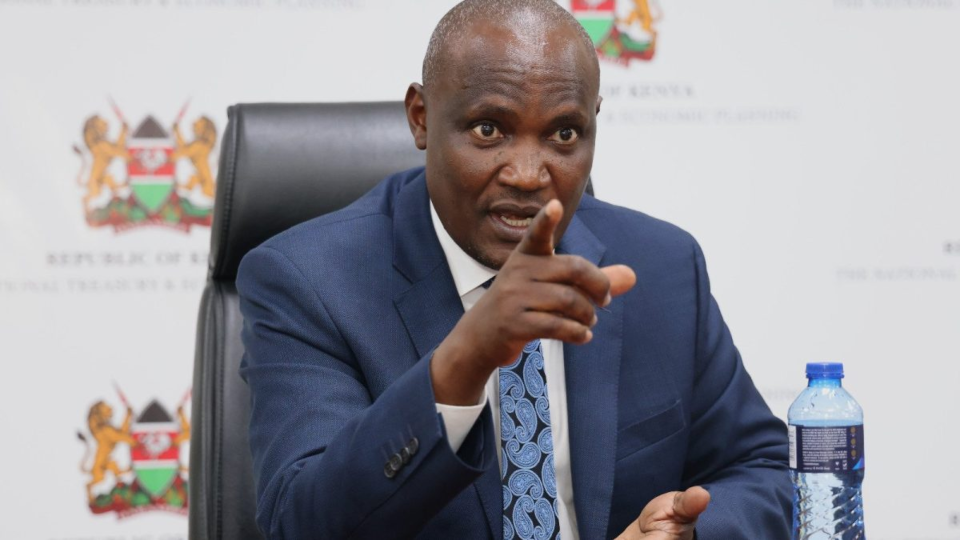Treasury Implements Direct Deductions for County Employee Dues to End Non-Remittance Issues
Starting from the end of August 2025, the National Treasury of Kenya will begin deducting statutory payments for county government employees directly from the source, a significant move aimed at addressing years of non-remittance by county governments. This initiative, announced by Treasury Cabinet Secretary John Mbadi, seeks to ensure compliance with financial regulations, enhance accountability, and curb financial indiscipline across devolved units.
The new system will leverage the Integrated Financial Management Information System (IFMIS) to channel deductions directly to statutory bodies such as the Kenya Revenue Authority (KRA), Savings and Credit Cooperative Organizations (SACCOs), and pension schemes before funds are disbursed to counties. This approach will also be applied to Ministries, Departments, and Agencies (MDAs), ensuring a uniform standard of financial management across government entities.
Cabinet Secretary Mbadi emphasized the urgency of this reform during a session with the Senate County Public Accounts Committee, chaired by Homa Bay Senator Moses Kajwang. He criticized the deliberate violation of financial procedures by some county officials, describing such actions as blatant abuse. Mbadi revealed that he rejected a request from county executives to delay the rollout of this system for a year, insisting on immediate implementation. He stated that county executives are among the primary culprits in financial malpractice, often running parallel payrolls, some manual and others automated, which have led to issues like ghost workers.
The practice of partial salary payments without remitting statutory deductions has been a significant concern. Mbadi condemned this approach, asserting that employees should receive their full salaries with all deductions properly remitted. He highlighted that counties have been paying only portions of salaries while failing to forward deductions to the relevant bodies, a practice he described as unacceptable.
Senator Moses Kajwang likened the diversion of approved payments to fraud in the insurance sector, where approved claims are redirected to unauthorized recipients. He stressed that county governments should serve as spaces for public service, not self-enrichment. Other senators, including Fatuma Dullo of Isiolo and Samson Cherargei of Nandi, raised concerns about the widespread practice of voiding, where approved payments are redirected to other purposes, exacerbating the issue of pending bills. Cherargei questioned whether the new system would effectively capture such cases, given that some counties fail to submit expenditure reports.
In response, Mbadi assured the committee that the new system is designed to prevent voiding by ensuring that only approved payments are processed. The twin system of approval and payment will align requisitions with actual disbursements, reducing opportunities for financial manipulation. He noted that oversight reports indicate counties owe statutory bodies, including KRA, the National Social Security Fund (NSSF), SACCOs, and pension schemes, over Sh200 billion. These arrears have been attributed to poor revenue collection, delayed fund disbursements by the National Treasury, political interference, diversion of funds, payment of other pending bills, and the refusal by successive county administrations to honor obligations.
The non-remittance of pension deductions has led to significant delays or non-payment of pensions for retirees, as highlighted in a 2023 Senate County Public Investment and Special Funds Committee report. The Controller of Budget has also noted that delays in supplementary budget approvals and underperformance in revenue collection have worsened the situation. Additionally, Section 53 (8) of the Public Procurement and Asset Disposal Act (PPDA) prohibits accounting officers from initiating procurement without confirming sufficient funds in the approved budget, a rule frequently violated by counties.
This reform marks a critical step toward addressing longstanding financial mismanagement in county governments. By centralizing deductions through IFMIS, the National Treasury aims to restore trust in the financial systems of devolved units, ensure employees receive their rightful benefits, and safeguard the interests of statutory bodies and retirees.


